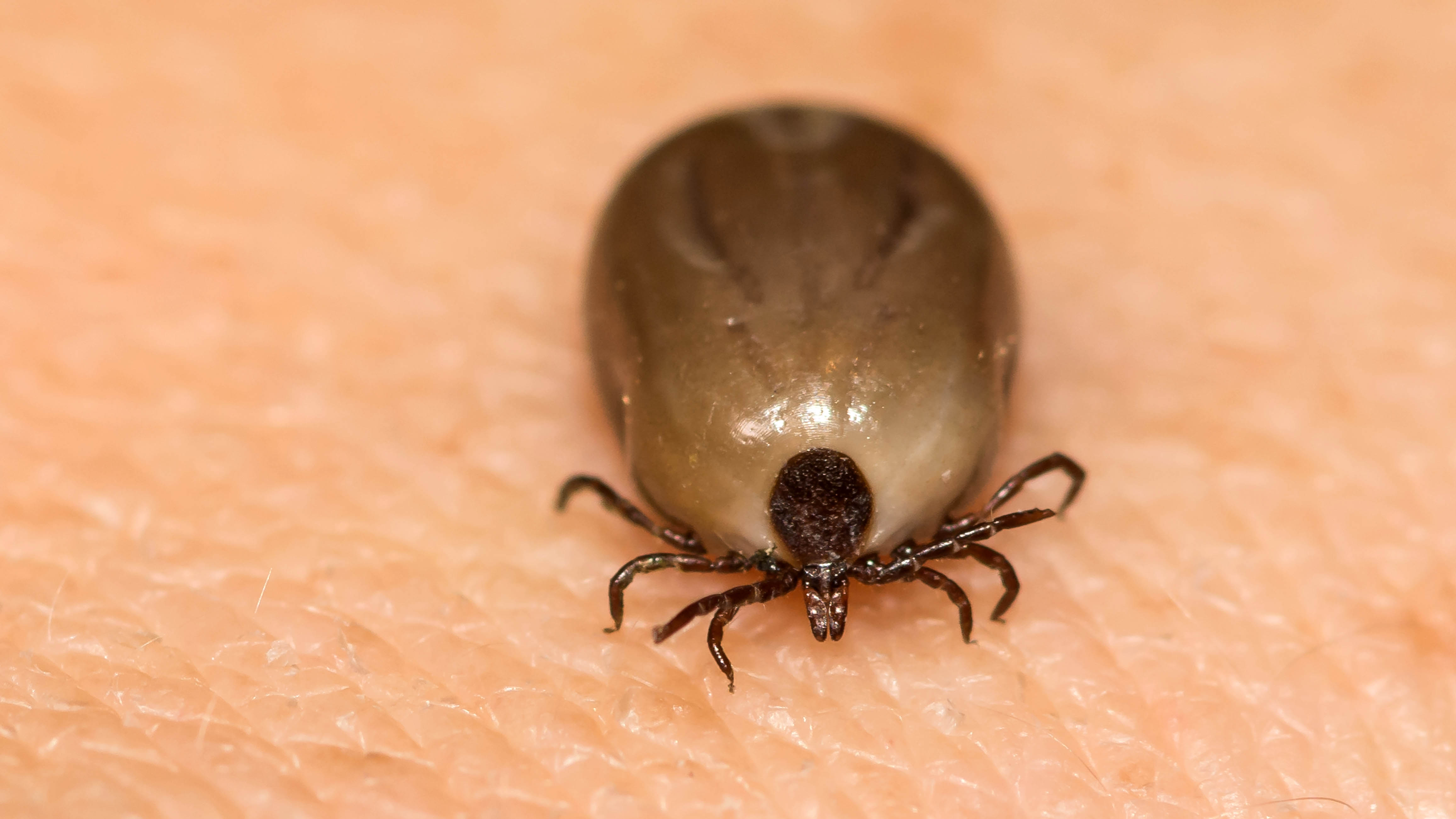Four Connecticut residents have tested positive for Powassan virus, according to the state Department of Public Health.
The four cases are the first to be identified in the state this year.
Two men who are 60 years old and up from Middlesex County and Litchfield County became ill in early July.
Two women who are 50 years old and up from Windham and Litchfield counties became ill in late July. The woman from Windham County lives in Brooklyn, according to the Northeast District Department of Health.
Get Connecticut local news, weather forecasts and entertainment stories to your inbox. Sign up for NBC Connecticut newsletters.
All patients reported having a tick bite and were hospitalized with a central nervous system disease. They have been discharged and are recovering.
The state Department of Health said lab tests performed at the Centers for Disease Control and Prevention Laboratory in Ft. Collins, CO, confirmed the presence of antibodies to POWV for all patients.
"The identification of four Connecticut residents with Powassan virus-associated illness emphasizes the importance of taking actions to protect yourself from tick bites from now through the late fall," Department of Public Health Commissioner Manisha Juthani, MD, said in a statement. “Using insect repellent, avoiding areas where ticks are likely, and checking carefully for ticks after being outside can reduce the chance of you or your children being infected with this virus."
As of Aug. 15, there were 11 cases of Powassan virus in the United States, according to the CDC.
- Maine: 3 cases
- Massachusetts: 3 cases
- New York: 2 cases
- New Hampshire: 1 case
- Pennsylvania: 1 case
- Minnesota: 1 case
Cases of Powassan virus in Connecticut
From 2016 to 2022, there were 19 cases of Powassan virus-associated illness in Connecticut, including six in 2022 and two of the infections were fatal last year.
How Powassan virus is spread
Powassan virus is spread to people through the bite of an infected blacklegged or deer tick.
It takes from one week to one month after the bite of an infected tick to develop symptoms of Powassan virus disease, and the virus can be transmitted in as little as 15 minutes after the tick first attaches. Powassan virus-associated illness has been reported from early spring until late fall.
Symptoms of Powassan virus
While most people infected with POWV likely experience no symptoms or a mild flu-like illness, some people will develop severe illness affecting the central nervous system.
About one out of 10 cases of severe illness are fatal and approximately half of survivors experience long-term health problems.
Severe cases may begin with fever, vomiting, headache, or weakness and rapidly progress to confusion, loss of coordination, difficulty speaking, or seizures.
There is no vaccine nor a specific treatment for POWV-associated illness. Severe illness is treated by supportive therapy which may include hospitalization, respiratory support, and hydration.
Tips for preventing tick bites
The state Department of Public Health offers these tips for preventing tick bites.
- Avoid areas where ticks are likely to be, such as in grassy, brushy, or wooded areas. Ticks are active from spring to fall and may also be active on warmer days during winter.
- Consider the use of CDC-recommended mosquito/tick repellents, containing DEET, picaridin, oil of lemon eucalyptus, IR3535, or 2-undecanone, and apply according to directions, when outdoors. However, repellents containing >30% DEET have been reported to be the most effective.
- Check yourself, your children, and your pet animals for ticks immediately after coming indoors. Showering within two hours of coming indoors may be effective in reducing the risk of tick-borne disease.
- Examine clothing and gear carefully after coming indoors. Tumble dry clothing in a dryer on high heat for at least 10 minutes to kill ticks that were carried inside.
- Talk to your veterinarian about the best tick-prevention products for your dog.
- Consider treating items such as boots, clothing, and hiking or camping gear with products containing 0.5 percent permethrin.
Dogs and ticks
The Northeast District Department of Health warns that dogs are quite susceptible to tick bites and tickborne diseases and vaccines aren't available for most of the tickborne diseases that dogs can get, and they don't keep the dogs from bringing ticks into your home.
The department urges dog owners to use a tick-prevention product on your dog.
They also said tick bites on dogs may be hard to detect and signs of tickborne disease may not appear for a week to three weeks or longer after a tick bite, so watch your dog closely for changes in behavior or appetite if you suspect that your pet has been bitten by a tick.
Sign up for our Breaking newsletter to get the most urgent news stories in your inbox.



